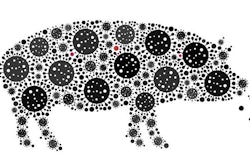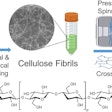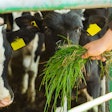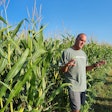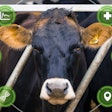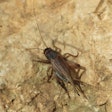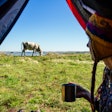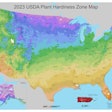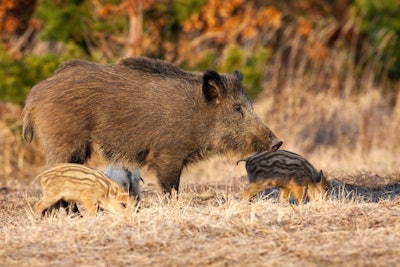
Feed bait used in Texas can tame wild boar population by making hogs sterile
The recent discovery of African swine fever (ASF) in domestic pigs in Germany less than one year after the country’s first cases in wild boar shows just how much of a risk the wild animals can be to domestic herds.
Wild pigs not only spread disease; their foraging habits can ruin crops, increase erosion and cause carbon dioxide to be released from the soil. They even sometimes prey on small livestock. And they reproduce rather quickly, producing two litters of four to 10 – or even up to 20 – piglets per year in good conditions.
There are many strategies in place in various countries to control wild pig populations, including trapping, hunting and fencing. In the U.S., there are no toxicants approved for use on feral swine, although other countries such as Australia use them.
“Wild pigs are difficult to control and when in close proximity to domestic production, they are almost impossible to control,” said David Herring of the National Pork Producers Council in 2019. “Most seriously, we are concerned about the spread of feral swine carrying diseases, including African swine fever.”
In Texas, a new hog contraceptive is being used to manage the feral pig population.
HogStop is a male contraceptive developed by Daniel Loper, his father Dr. Daniel C. Loper and their partner, Brad Fails.
“It’s an all-natural feed bait that is made out of ingredients we feed the cattle and deer, and we just combined it in such a way to use it on feral hogs to make the boars sterile,” Loper told the Texas Farm Bureau Radio Network. “It’s just designed to make the boars less fertile, so we can get a hold on the feral hog population.”
Hi-Pro Feeds, which manufactures the product, said the non-toxic formula reduces the fertility of feral hogs within five days and maintains fertility interruption for at least 30 days. It is also thought that the product lowers sow fertility, but that is harder to measure. The product is meant to be used with feeders that target wild pigs.
Because HogStop is registered as a pesticide under the Federal Insecticide, Fungicide, and Rodenticide Act by the Environmental Protection Agency, it does not need to be registered by the Texas Department of Agriculture before use.
“This could be a great new weapon in the war on feral hogs,” said Texas Agriculture Commissioner Sid Miller. “It appears that unlike other hog baits, this is not a poison. Instead, it interrupts the reproduction of this animal over time, and therefore makes the product more humane. Hogstop, or any other product that is available to help Texas farmers and ranchers curb the damage done by these feral hogs, is welcomed at the Texas Department of Agriculture.”




